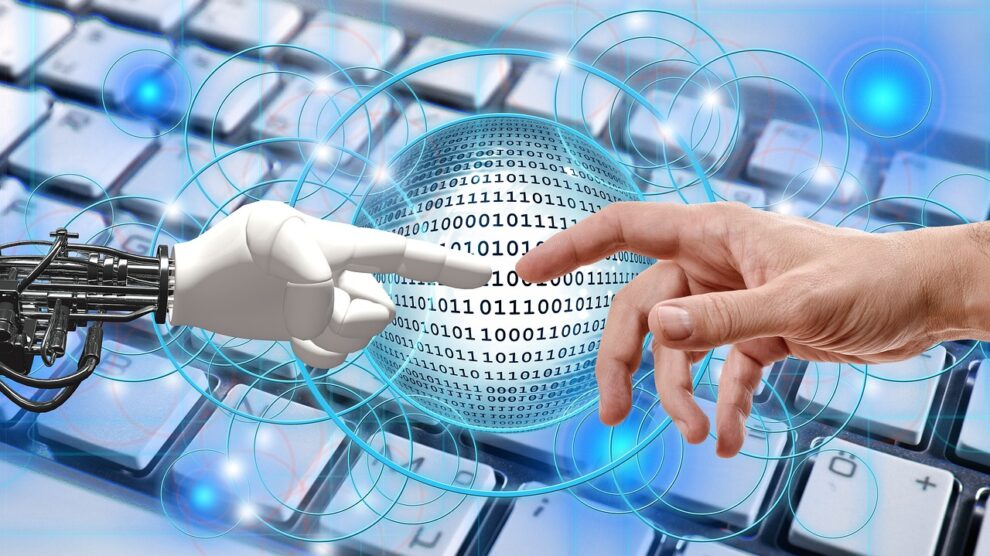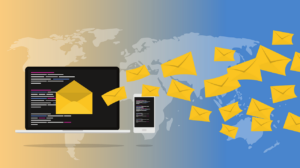It is commonly anticipated that AI would significantly alter the business world in the upcoming few
years. McKinsey’s research reveals that sales and digital marketing are the corporate functions where it
would have the most significant economic effect.
This implies every marketer that is missing on utilizing AI, is losing out on what is perhaps the most
game-changing technology in the past few and the upcoming years.
More and More Business Adopt AI Each Year
The results of the 2021 McKinsey study found that the use of Artificial Intelligence is still increasing
steadily: 56 % of all participants, compared to 50% in the year before, report AI usage in at least one
sector of their business and marketing activities.
According to the most recent findings, the adoption of artificial intelligence has expanded fastest since
2020 in businesses with headquarters in developing nations, such as China, the Middle East, and North
Africa: 57% of respondents claim to use AI in one form or another, rising from 45% in 2020.
Additionally, across all geographies, Indian businesses have the greatest adoption rates, closely followed
by those in Asia-Pacific.
These 5 Digital Marketing Areas Are Begging for AI
Content Creation
The main way that AI and machine learning are helping companies is by giving them the information
they need to generate good content. Major magazines already employ this technique to take previously-
existing data and blend it with buzzwords and keywords to produce original content that draws website
traffic.
News organizations have practised this for a long time, including the BBC. Because of how effective and
cost-efficient this method is, most likely you’ve read an AI-powered article from a major media news
before without even recognizing it. Already there are tens if not hundreds of AI-powered content-
generating tools on the internet.
Performance Marketing
Without a question, the most common niche of digital marketing that employs AI is performance
marketing. For instance, the ad systems of Google ads and Facebook currently employ AI and machine
learning to identify those more likely to perform a conversion close to the advertiser. In order to
accomplish this, the platforms analyze user data such as interests, geo-location, demographics, and
other factors in order to identify the greatest audience for their business.
The automated auction-based approach that Google AdWords has already enabled marketers to spend
the least amount per conversion. The same approach is used on programmatic media buying auctions.
Machine learning is used by programmatic networks to make live-auction bids on relevant advertising
space to target the desired consumer audience. Data on preferences, geography, past purchases, buyer
intentions, and other factors are used to influence the bid.
This makes it possible for digital marketing departments to use AI and target the proper channels during
the best time and for a reasonable price. The use of programmatic purchasing is an example of how
machine learning may boost advertising flexibility to accommodate changing consumer wants and
desires in real-time.
Email Marketing
Based on customer habits and general behaviors, brands are personalizing email marketing efforts. This
makes it possible for you to communicate with them more skillfully and, perhaps, convert them into
customers. Machine learning algorithms can analyze millions of points of data about every single
customer and give you live insights regarding how to approach them.
You can know at what time each topic is most likely going to be opened, how to optimize your subject
lines, and what are the best preheaders to grab the user’s attention and increase open rates.
AI-Inspired Website Design
Consequently, artificial intelligence and deep learning have advanced to the point that they are now
being utilized to assist businesses in developing good websites utilizing the actual actionable insights of
their previous and current clients.
There are countless tools and software that basically “suggest to you” where to place elements like
photos, text, or CTAs on a web page by referring to consumer activity from a variety of sources. Imagine
you have an ML system but have no way to be sure where to place specific design elements to provide
your clients with the most desired flow and UX. These tools will assess how users engage with your
platforms, taking the guessing risk out of the process.
Predicting Customer Behavior
Many companies are utilizing AI systems to forecast future user actions as well as to improve the
understanding of prior customer behaviors. If you can forecast everyone else’s conduct based on prior
actions or indications of interests, you can usually predict their future actions, desires, and interests, as
well.
Thanks to marketers having the chance to quickly filter out those who are less likely to convert. This
frees them and allows them to allocate all of their budget and efforts to the hotter leads with higher
quality.
Final Words
The marketing industry is heading down a thrilling path. Each day, AI and machine learning algorithms
are beginning to make a difference in more marketing-related fields. Perhaps, in a few years, it would
become a must for marketeers to have a solid understanding of AI in order to keep their jobs and to
continue honing their skills.





